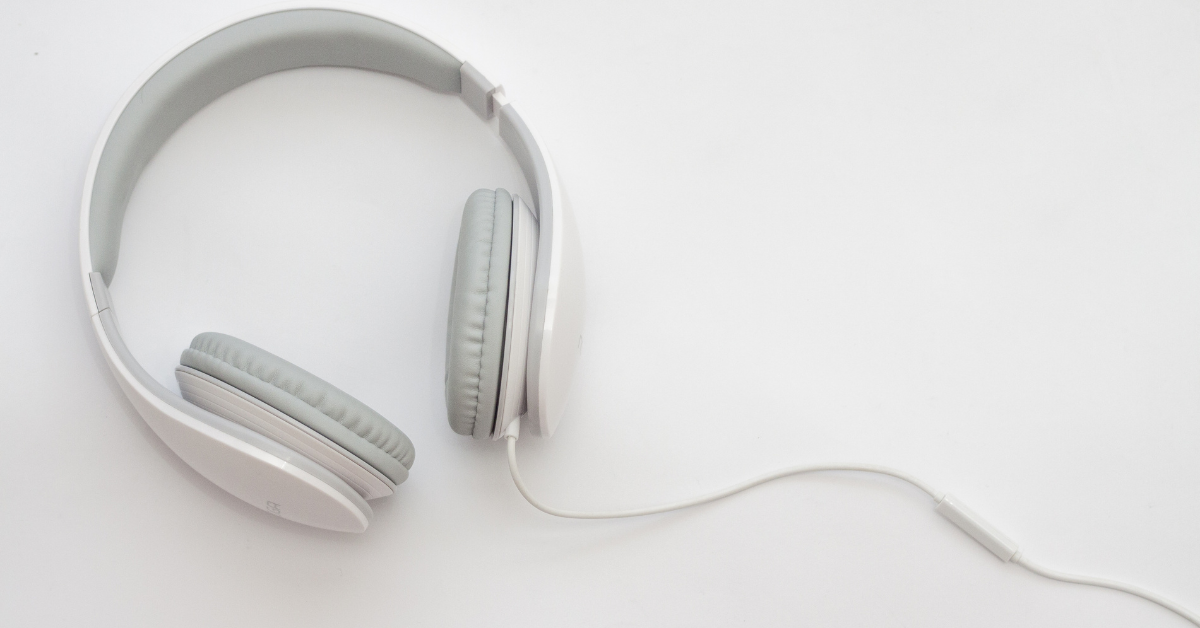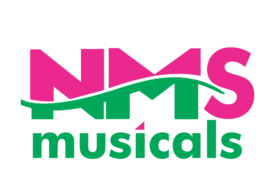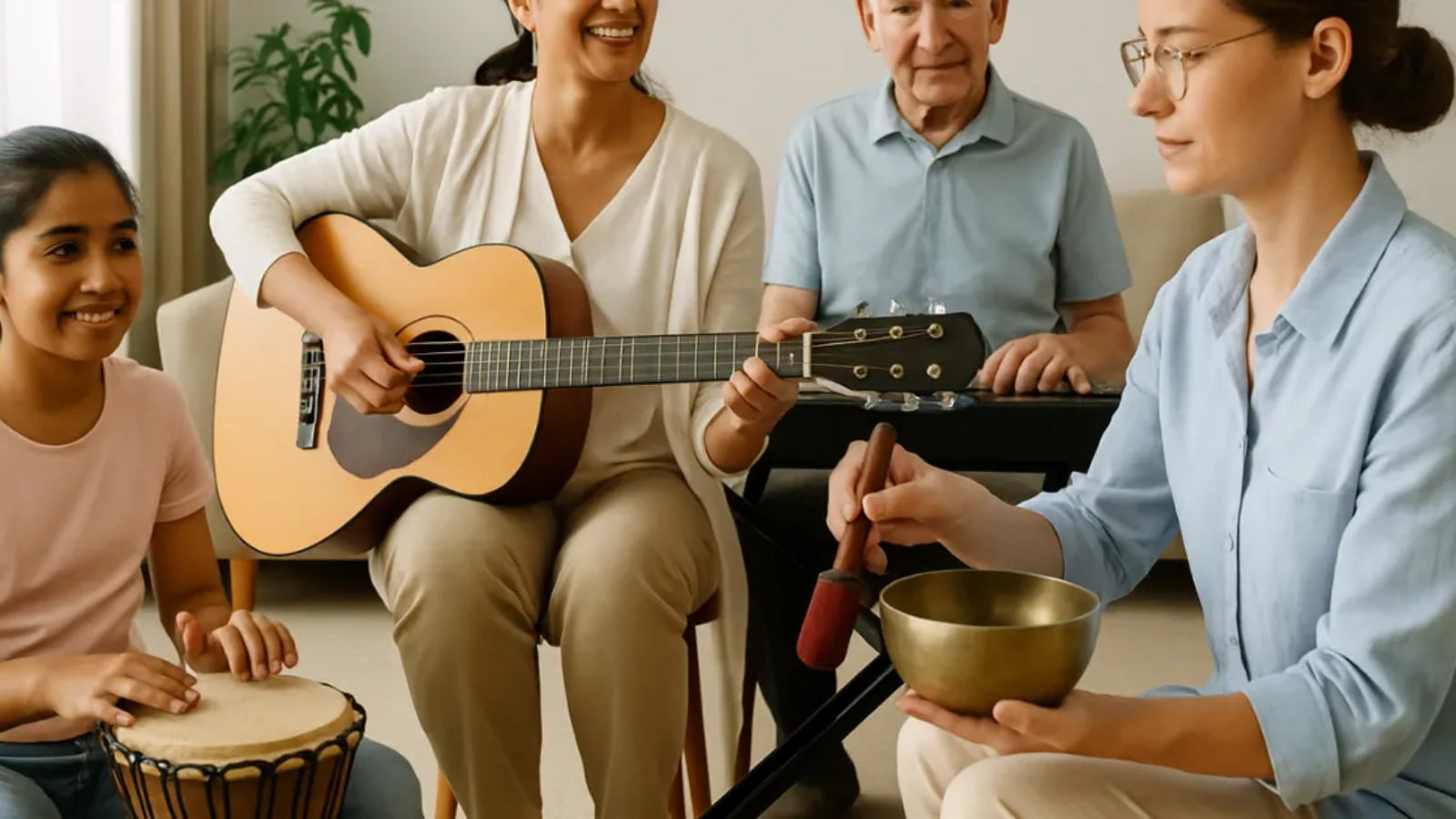Discover how the healing power of music therapy helps mind and body

Music has always held a special place in human culture. From ancient chants and ceremonial rhythms to modern pop songs and symphonies, it speaks directly to our emotions and thoughts. In recent years, music has become more than just entertainment—it’s now recognized as a powerful form of therapy. Music therapy, particularly when it involves playing musical instruments, is emerging as a potent tool for healing and emotional well-being.
This blog explores music therapy the healing power of playing instruments, breaking down how and why it works, who it helps, and how anyone can benefit from it.
1. What Is Music Therapy?
Music therapy is a clinically proven approach where music is used to address physical, emotional, cognitive, and social needs. Certified music therapists design structured sessions involving music creation, listening, singing, or instrument playing to support therapeutic goals.
It’s not just about listening to relaxing music—though that helps, too. It’s an active, evidence-based process designed to improve quality of life, reduce stress, and promote emotional and psychological healing.
2. The Science Behind Music Therapy
Music has a profound effect on the brain. It activates both the left and right hemispheres, improves neuroplasticity, and encourages the release of dopamine and serotonin—neurochemicals associated with happiness and relaxation.
Here are some science-backed benefits:
- Reduces cortisol levels (stress hormone)
- Increases oxytocin (the “bonding” hormone)
- Improves neuroplasticity, especially beneficial after trauma or injury
- Enhances memory and focus—great for people with Alzheimer’s or ADHD
3. Why Playing Instruments Enhances Healing
Listening to music is powerful, but playing instruments deepens the therapeutic effect. Here’s how:
a. Physical Engagement
Playing an instrument involves coordination, movement, and breathing, which can help with motor skills and physical rehabilitation.
b. Emotional Release
Expressing emotions through music can help process trauma, reduce anxiety, and improve self-awareness.
c. Mental Focus
Learning an instrument encourages focus, discipline, and cognitive flexibility. This is particularly useful for children and individuals with attention disorders.
d. Social Connection
Group music sessions promote cooperation, communication, and empathy—crucial for those facing social anxiety or isolation.
4. Who Can Benefit from Music Therapy?
Music therapy is inclusive—it can help almost anyone, regardless of age or musical ability. Some groups that particularly benefit include:
a. Children with Developmental Disorders
Children with autism or speech delays often find it easier to express themselves through instruments and music games.
b. Seniors with Dementia
Music helps stimulate memory, evoke emotion, and create connections with others, even when verbal communication is challenging.
c. People Recovering from Trauma
Music provides a safe and non-verbal outlet to process painful memories and feelings.
d. Individuals with Mental Health Challenges
People dealing with depression, anxiety, PTSD, and stress-related disorders benefit from the structured emotional release that music offers.
5. Types of Instruments Often Used in Therapy
The type of instrument can influence the therapeutic effect. Some common options include:
a. Drums and Percussion
These are excellent for releasing tension and promoting coordination.
b. Piano and Keyboard
These instruments are great for melodic expression and cognitive stimulation.
c. Guitar
The guitar offers rhythmic and harmonic flexibility, making it popular in both individual and group sessions.
d. Wind Instruments (like flute or harmonica)
These aid in controlled breathing and relaxation.
e. Singing Bowls and Bells
Used in sound therapy, they promote calmness and meditation.
6. Music Therapy in Practice: What to Expect
In a typical music therapy session:
- The therapist evaluates emotional and physical needs
- Sessions are tailored—some may focus on rhythm, others on improvisation or songwriting
- Goals may include improving communication, reducing anxiety, or enhancing motor skills
These sessions may be conducted in:
- Hospitals
- Schools
- Mental health facilities
- Rehabilitation centers
- Private clinics or even online
7. Case Studies: Real-Life Healing Through Music
Case 1: PTSD Recovery
A war veteran struggling with PTSD found comfort in drumming sessions. Over months, the rhythmic activity helped reduce his flashbacks and anxiety levels.
Case 2: Speech Development in Children
A non-verbal child with autism began speaking words through singing activities during therapy. Instrument-based sessions encouraged expression and interaction.
Case 3: Elderly Joy
In a senior care home, group keyboard sessions sparked joy and laughter among residents, improving both cognitive function and emotional well-being.
8. Incorporating Music Therapy at Home
Even without a certified therapist, families can bring the benefits of music home:
- Create a safe space for instrument exploration
- Encourage improvisation and free play
- Use music-based games for memory, attention, or communication
- Practice breathing and mindfulness using wind instruments or singing
9. How to Get Started with Music Therapy
If you or someone you know could benefit:
- Look for certified music therapists in your area
- Ask your healthcare provider for referrals
- Choose sessions based on individual needs—emotional healing, cognitive improvement, or stress reduction
Some useful resources include:
- The Indian Association of Music Therapy (IAMT)
- Hospitals and wellness centers with music-based programs
- Online music therapy platforms for remote sessions
Conclusion
Music therapy is more than just a feel-good experience—it’s a transformative tool for healing. Through structured and purposeful engagement with instruments, individuals of all ages can experience improved mental, emotional, and physical well-being. Whether you’re struggling with stress, helping a child express emotions, or looking to reconnect with joy, music provides a path forward.
So why wait? Pick up that instrument, hit that key, or strike that drum. The healing power of playing instruments is real—and it’s never too late to tune into the music within.
At NMS Musicals, we offer a comprehensive range of musical instruments, including percussion, string, wind, and keyboard instruments. Our services encompass sales, expert servicing, and the manufacture of leather instruments. Explore our diverse collection and find the perfect instrument to suit your musical needs.
Visit our website to browse our offerings: nmsmusicals.in
For a closer look at our products, check out our shop page: nmsmusicals.in/shop
Stay connected with us through our social media channels:
- Facebook: https://www.facebook.com/nmsmusicalinstruments/
- Instagram: https://www.instagram.com/nmsmusicals/?hl=en
- YouTube: youtube.com/@nmsmusicals
Our shop locations are:
- Puducherry: 149, Perumal Koil Street, Heritage Town, Puducherry, 605001.
Map Link: https://maps.app.goo.gl/ejDwBBFEJmd3szxk7 - Chennai: No: 1, 1st Floor, Kandigai Street, TVS Nagar, Korattur, Chennai – 600076.
Map Link: https://maps.app.goo.gl/7oXmB6X7KQsqeuuw9
For inquiries, contact/Whatsapp us at 9500663895 or email us at laxman.m89@gmail.com.
Discover the world of musical instruments with NMS Musicals today!
For a visual overview of our percussion instruments, watch the following video:


 Cart is empty
Cart is empty 
Leave A Comment
You must be logged in to post a comment